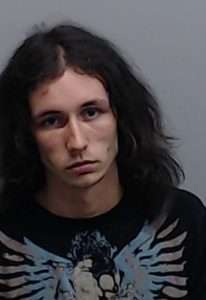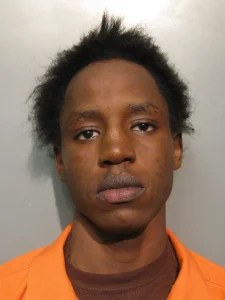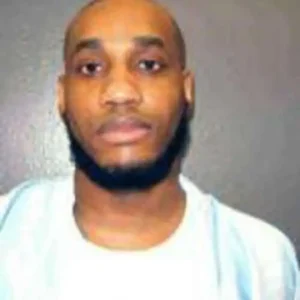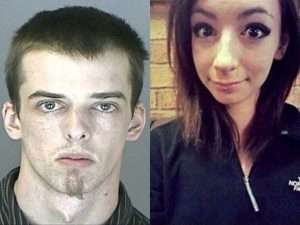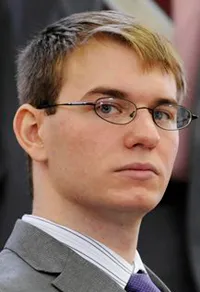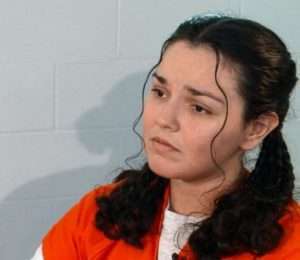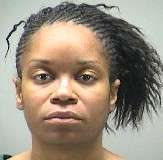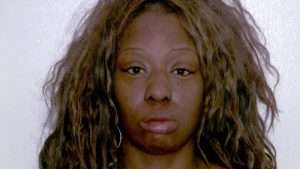Susan Smith is a killer from South Carolina who was convicted in the murders of her two sons
According to court documents Susan Smith would call police and tell them that a black man had carjacked her vehicle with her two young sons in the vehicle. This set off a massive search that would last for nine days with Susan appearing multiple times begging for the safe return of her sons. However it was all a lie
Susan Smith would then confess to driving her vehicle into a South Carolina lake where she would allow the vehicle to sink with three-year-old Michael and 14-month-old Alexander in the car
Susan Smith would be arrested, convicted and would be sentenced to life in prison with no parole for 30 years. Susan is eligible for parole in 2024
Susan Smith Now
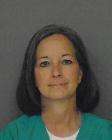
Leath Correctional Institution
Susan Smith Videos
Susan Smith Case
A jury today decided that Susan Smith should not be put to death for the drowning of her two young sons, and instead should spend the rest of her life in prison, to remember.
It took the jury two and one-half hours to reject the prosecution’s request for the death penalty and settle on the life sentence. The jury’s unanimous decision saved Mrs. Smith, 23, from death row, but left her alone in a tiny cell with the ghosts of her dead children, for at least the next 30 years, her lawyer said.
“This young woman is in a lake of fire,” said the lawyer, David Bruck. “That’s her punishment.”
Mr. Bruck had argued that Mrs. Smith was so distraught over the deaths of her children, Michael, 3, and Alex, 14 months, that she did not want to live. But as the jury’s verdict was read, she gasped, and slipped her arm around Mr. Bruck’s waist to give him a quick, firm, hug.
Mrs. Smith, at the center of a murder case that first drew the sympathy and later the loathing of the nation, was convicted last Saturday of murder.
To reclaim a lover who said he did not want a relationship with a woman who had children, the prosecutor contended, Mrs. Smith drove to a dark lake on the night of Oct. 25 and sent her car rolling into the water with the two little boys strapped inside in their car seats.
For nine days, Mrs. Smith looked into television cameras and mournfully begged a phantom carjacker, whom she described as a young black man with a gun, to bring her babies back.
Then, after thousands of volunteers had combed back roads, dredged lakes, passed out flyers and prayed for her sons’ safety, she broke down after a prayer with a plain-spoken, methodical county sheriff and said the words that no one wanted to believe.
Now, after nine months of what residents here call a collective pain over these murders and the national attention — for all the wrong reasons — it has brought to this little mill town, it is over.
Almost on cue, as the county court clerk read off the verdicts in the courtroom, it started to rain hard, washing away for at least a little while a summer heat wave that has lasted throughout this trial
“Poetic justice,” said Andy Wallace, a state investigator, as he watched the rain run down the street.
Inside the courtroom, Mrs. Smith’s family members clasped their hands and prayed as the verdict was read. The boys’ father sat like a statue. David Smith had said he wanted his estranged wife to die for what she did.
It was a lifetime of deep depression, punctuated by destructive sexual affairs and suicide attempts, that caused Mrs. Smith to snap the night of the murders, and do what few human beings could ever do, her lawyers claimed.
That sickened Mr. Smith, who buried his children in the same coffin as Mrs. Smith sat in her prison cell.
“Me and my family are disappointed that the death penalty was not the verdict,” he said, his lips quivering as he held back his tears. “But it wasn’t our choice. They returned a verdict they thought was justice.
“I’ll never forget what Susan has done to me, my family and her family. I can never forget Michael and Alex.
“But forgive? That’s something I guess I’ll have to deal with further down the road.”
He said he would probably leave town. There are too many memories here, crowding in on him.
“There are a lot of things I would rather not look at for the rest of my life,” he said.
The state’s lead prosecutor, Tommy Pope, had tried to show that Mrs. Smith was fooling everyone with her claims of remorse, the way she fooled everyone for nine days in October and November.
“She may be sorry now,” Mr. Pope said, his voice rising from a near whisper to a shout as he urged the jury for a death sentence in his closing argument. “But was she sorry when she dropped that hand brake down,” and sent her children to their death.
He laid photographs of the two little boys on the rail of the jury box as he spoke of what the boys must have felt as the car slid under the lake at about 9 P.M., and how Mrs. Smith ran from the edge of the lake with her hands over her ears
“When that car filled up with water they probably didn’t see it,” said Mr. Pope, because of the dark of the night. “But they felt that water in the darkness as it covered their faces.”
His case against Mrs. Smith, and his refusal to accept a plea bargain for life in prison, caused the town to have to relive the worst thing that has ever happened here.
The prosecutor has been criticized, and accused by Mr. Bruck and others of using Mrs. Smith to build a reputation.
“I stand by it,” Mr. Pope said of the decision, “and I always will. Even at the end of this road we’ve all been through, I’d say it was still worth it. It had to be done.”
If he had not done what he did, Mr. Pope said, the horror of what she did would have slipped easily by, with the lives of the children.
Mr. Bruck said that would not have happened, because Mrs. Smith will pay every day for her crimes.
She is afraid, he said, because of her mental condition, to be alone, and her depression deepens every time she is left alone.
“Her life doesn’t look too much different today than it did yesterday,” Mr. Bruck said. “She is relieved for her family. She knew the people she loved could not bear her death.”
But now Mrs. Smith will go back to a cell so small she can almost touch the walls from side to side when she stretches out her arms.
She will be permitted to have visitors, but she will spend most days alone, except for the guards.
“There is no good outcome in this case. This case was an awful case of tragedy from the beginning and still is,” Mr. Bruck said. “It was such an awful thing, an unbearable thing.
Mr. Bruck countered Mr. Pope’s appeal for an eye for an eye with his own scripture and verse.
Holding a Bible in his hand, he read the story from the Gospel of John about the woman who committed adultery, and was to be stoned.
“He that is without sin among you, let him cast the first stone,” Mr. Bruck read, in his nondescript Yankee accent.
In South Carolina, state law requires a death penalty verdict to be unanimous. If one juror holds out, it is an automatic life sentence, with a chance of parole after 30 years.
The jurors refused to comment on the case today, so it was not clear why they decided to spare Mrs. Smith. But during jury selection, several of the jurors had talked of the enormity of the decision of life or death.
Guilt was always a foregone conclusion. Mrs. Smith confessed on Nov. 3, and her childrens’ bodies were recovered later that day. Divers had missed the car in their first search of John D. Long Lake, a recreation area outside Union, because they did not search far enough into the lake.
The jury of three women and nine men, eight whites and four blacks, took the same amount of time to convict her — two and a half hours — as it did to reject the death penalty. In such a small place, picking a jury with no ties to her had been impossible. One of them, the wife of the police chief, had been Mrs. Smith’s babysitter when she was a child, and others had friends or co-workers who saw members of her family almost every day, at the mill, at the Wal-Mart, at ball games.
“I think a part of each person in the courtroom was swayed by the nature of the crime, and the impact on its victims,” said the Judge, William Howard, during the sentencing.
“I know your hearts have been torn, as everyone’s hearts have been torn,” he told the jury.
For black residents of Union, there was a special pain. Mrs. Smith chose a black man as a scapegoat, they believed, because it was more believable.
But everyone here was affected, one way or another, residents said. Beverly Russell, the stepfather who molested Mrs. Smith when she was a teen-ager, was once a big man in town, a respected political leader, church goer and businessman. Other secrets have been spilled.
Most are just glad it is done, and want life to resume some normalcy, if that is possible.
Others felt cheated, because they still are not sure which of the two Susan Smiths killed the boys that night.
“There are some things that are going to remain somewhat mysterious,” said Mr. Bruck. “I wish it wasn’t so.”
One fact still haunts Mr. Pope. Mrs. Smith parked her car on a steep incline that night, in what her lawyers said was a failed suicide. She let go the hand brake, reconsidered and pulled it up again, then let it go and — in some instinct for survival — jumped from the car.
But Mr. Pope, and common sense, say that is impossible. She would have had to have flung herself as the car began to roll immediately, and would have certainly torn or dirtied her clothes. Her clothes were clean when she walked to a nearby house to tell her lie about the carjacker.
Mr. Pope, and common sense, say she must have stood outside the car, leaned in to let go the hand brake, and jumped back.
And how, many people here wonder, was that a suicide attempt?
